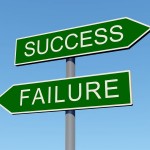Being good isn’t good enough is a stunningly beautiful song about determination and greatness, a personal anthem for anyone who has ever wanted to be the best at something, like the athletes in the forthcoming Olympic games.
For most of us, however, the lyric, “I’ll be the best or nothing at all,” is inspiring, but hardly practical. Who is the best singer, football player, or lawyer?
Besides, we don’t have to be “the best” at what we do to be happy or successful. In fact, we don’t even have to be good.
We can hire people (or take on partners) who are good at things we don’t do well or don’t enjoy. You don’t like research? You’re not good at networking? It doesn’t matter. You’re good at something and that’s what you should focus on.
Speaking of focus, I was reading a review of Daniel Goleman’s book, Focus, about what it takes to achieve excellence. It’s not as simple as “10,000 hours of practice” or intelligence. There are a lot of factors, one of the most important of which is determination or grit.
Think about the successful people you know, especially the ones who aren’t particularly gifted, disciplined, or hard working. How did they make it big when so many others in their field did not? Often, the answer is simply that they wanted it more, and believed they could have it. Their desire, and refusal to settle for anything less, made the difference.
You don’t have to be the best at what you do. You just need to know what you want and keep going until you get it.
Need more referrals? Here’s a great way to get them.








